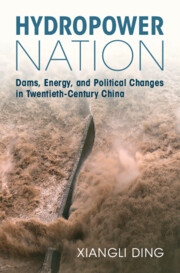Introduction
A Flow of Water and Power
Published online by Cambridge University Press: 24 October 2024
Summary
In 1996, along the Yangtze River in Zigui 秭归, Hubei Province, the villagers of Guilin were in the middle of packing their belongings. Their friends and relatives were helping them to remove tiles, doors, and windows from the soon to be deluged homes. Down the hill, people were loading farm tools, furniture, and other essentials onto boats anchored along the river’s banks. Amid the din of firecrackers and farewells from their fellow villagers, the first group of Three Gorges migrants set off for their government-designated places of resettlement. Because of the low-altitude location of their residence, Zhang Bing’ai 张秉爱, together with her disabled husband, and two children, were supposed to be part of the first group of migrants. For years, thanks to the help of her maternal family, Bing’ai had been able to cope with the burdensome farm work during busy seasons. Therefore, she insisted on staying for “moving up” resettlement, requesting a flat area for residential use at a higher altitude above the state designated displacement line, which was at odds with the government’s resettlement policy. “I am just attached to this land. With land, you can have everything.” Bing’ai refused to cooperate with the government’s resettlement plan, but it was to no avail. Her home, along with what remained of those of her fellow villagers, was soon underwater. Her family ended up living in a temporary hut not far from the rising water.
- Type
- Chapter
- Information
- Hydropower NationDams, Energy, and Political Changes in Twentieth-Century China, pp. 1 - 22Publisher: Cambridge University PressPrint publication year: 2024

